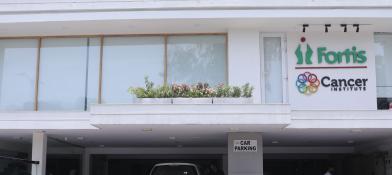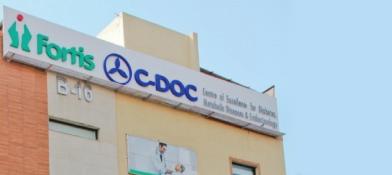About Pain Management
Introduction
Pain is a complex and subjective experience affecting millions worldwide, impacting their quality of life and productivity. Pain can develop due to a disease, injury, or related treatment. It can sometimes last for a short period and go away after healing of the underlying cause (acute pain). Or it can last for months or years (chronic pain). Effective pain management reduces suffering and improves functionality and overall well-being.
Causes of Pain
Pain can arise from various conditions, affecting multiple body parts and stemming from underlying causes. Some such causes include:
- Musculoskeletal Disorders: Arthritis, tendonitis, bursitis, sprains, and fibromyalgia are caused by joint pain.
- Neurological Disorders: Damaged nerves can lead to pain and stinging sensations in neuropathy, trigeminal neuralgia, postherpetic neuralgia (shingles), multiple sclerosis, and headaches.
- Inflammatory Conditions: These conditions trigger the release of inflammatory mediators that irritate nerves and cause pain. They include inflammatory bowel disease, pancreatitis, endometriosis, interstitial cystitis, and spondylitis.
- Traumatic Injuries: They distort nerve terminals around bone and muscles, causing pain. For example, fractures, dislocations, contusions, nerve injuries, and whiplash.
- Cancer: Tumor growth and metastasis can cause pain by compression of nerves, invasion of tissues, or inflammation. Cancer treatments such as chemotherapy, radiation therapy, and surgery can also induce pain.
- Visceral Disorders: Conditions such as gall stones, kidney stones, ulcers, gastroesophageal reflux disease (GERD), and pelvic inflammatory disease (PID) can cause pain due to the activation of nociceptors (sensory receptors).
- Psychological Factors: Psychological factors increase pain perception and cause stress, anxiety, and headaches.
- Autoimmune Disorders: The immune system attacks the body, causing pain and discomfort. For example, systemic lupus erythematosus (SLE), Hashimoto’s thyroiditis, and rheumatoid arthritis.
- Vascular Disorders: Disorders like peripheral artery disease (PAD), varicose veins, and deep vein thrombosis (DVT) cause pain due to disruption in blood flow.
- Degenerative Disorders: Conditions like degenerative disc disease, osteoporosis, and spinal stenosis can lead to pain.
Types of Pain
Pain is classified into various types based on duration, etiology, and physiological mechanisms.
- Acute Pain: This type of pain rises in response to a sudden injury or trauma and is mostly severe. It is temporary and goes away once the underlying cause is eliminated. Examples include post-surgical pain, dental pain, and pain due to acute injuries like fractures or burns.
- Chronic Pain: Chronic pain persists for a prolonged time (more than six months) to facilitate tissue healing. The causes may be tissue damage, nerve dysfunction, or alterations in the nervous system, requiring long-term management. Examples include chronic back pain, neuropathic pain, and fibromyalgia.
- Nociceptive Pain: The pain is caused by tissue damage and activation of specialized sensory receptors called nociceptors. It is sharp and throbbing and localized to the injury site. Examples include postoperative pain, osteoarthritis-related pain, and menstrual cramps.
- Neuropathic Pain: Neuropathic pain results from dysfunction or damage to the nervous system, leading to abnormal transmission of pain signals. It is a burning or shooting pain accompanied by numbness or tingling. It may persist even after the initial injury has healed. Common causes include diabetic neuropathy, postherpetic neuralgia (shingles), and trigeminal neuralgia.
- Psychogenic Pain: Psychogenic pain stems from stress, anxiety, or depression rather than from physical injury or disease. Common causes include somatic symptom disorder, conversion disorder, and chronic tension headaches.
Pain Management Techniques
Pain management therapies are a combination of pharmacological and non-pharmacological interventions. The doctor may recommend one approach or a combination of several pain management techniques, including:
- Medications: Oral medicines such as nonsteroidal anti-inflammatory drugs (NSAIDs), opioids, acetaminophen, and muscle relaxants reduce inflammation and alleviate pain. Topical analgesics like creams, gels, or patches can be applied to the painful area for pain relief.
- Therapy: Physical, occupational, and cognitive behavioral therapies include exercises, stretches, manual therapy techniques, daily activities management, heat, cold, ultrasound, and electrical stimulation that reduce pain.
- Psychological Intervention: This treatment helps individuals identify and avoid negative thoughts, emotions, and pain-related behaviors.
- Acupuncture: This traditional Chinese medicine technique includes inserting thin needles into specific points on the body to stimulate nerve pathways and promote pain relief.
- Massage: Massage involves the manipulation of soft tissues to reduce muscle tension and provide pain relief.
- Mindfulness Techniques: Practices such as meditation, deep breathing exercises, progressive muscle relaxation, and guided imagery can help reduce stress and pain.
- Transcutaneous Electrical Nerve Stimulation (TENS): This approach involves sending low-voltage electrical impulses through electrodes placed on the skin to disrupt pain signals and stimulate the release of endorphins, providing temporary pain relief.
- Biofeedback: This technique helps individuals gain awareness and control over physiological processes to modulate pain perception.
- Interventional Procedures: These are minimally invasive techniques performed by trained specialists. For example, epidural steroid injections, nerve blocks, spinal cord stimulation, and radiofrequency ablation. They target specific pain generators and provide localized pain relief.
- Lifestyle Modification: Losing weight, eating a balanced diet, drinking plenty of water, getting enough sleep, and managing stress reduces chronic pain.
- Surgery: In some cases, surgical procedures may be necessary to address the underlying cause of pain, such as repairing damaged tissues, decompressing nerves, or removing tumors.
Indications to Consult a Doctor
- Persistent or severe pain impairing daily activities
- Chronic pain lasting weeks or months
- Increased pain intensity or limited mobility
- Ineffective pain management
- Feelings of anxiousness and depression
Pain is a complex yet protective mechanism. It is a vital part of evolution that shields the body from danger and harm. However, living with pain can be extremely challenging, both physically and mentally. With specialized expertise and access to advanced techniques, Fortis offers personalized care, addresses underlying causes, and empowers people to effectively manage their pain, leading to greater comfort during their healthcare journey.
Our Team of Experts
View allRelated Specialities
Other Specialities
-
Explore Hospitals for
Fortis Cancer Institute, Defence Colony, New Delhi Fortis Memorial Research Institute, Gurgaon Fortis CDOC, Chirag Enclave, New Delhi Fortis Escorts Heart Institute, New Delhi Fortis Flt. Lt. Rajan Dhall Hospital, Vasant Kunj, New Delhi Fortis La Femme, Greater Kailash II, New Delhi Fortis Escorts Hospital, Faridabad Fortis Hospital, Noida Fortis Hospital, Shalimar Bagh, New Delhi Fortis Escorts Hospital, Amritsar Fortis Hospital, Mohali Fortis Escorts Hospital, Jaipur Fortis Hospital, Anandpur, Kolkata Fortis Hospital CG Road Bangalore Fortis Hospital - Greater Noida Fortis Hospital & Kidney Institute, Gariahat, Kolkata Fortis Hospital BG Road Bangalore Fortis Nagarbhavi Bangalore Fortis Hospital, Rajajinagar, Bengaluru Fortis Hospital, Richmond Road, Bengaluru Hiranandani Fortis Hospital, Vashi, Mumbai Fortis Hospital, Mulund, Mumbai Fortis Hospital, Kalyan, Mumbai Fortis Hospital, Ludhiana S L Raheja Hospital, Mumbai Fortis Hospital Mall Road, Ludhiana Fortis Hospital,Manesar,Gurugram -
Explore Doctors for by Hospital
Doctors in Fortis Cancer Institute, Defence Colony, New Delhi Doctors in Fortis Memorial Research Institute, Gurgaon Doctors in Fortis CDOC, Chirag Enclave, New Delhi Doctors in Fortis Escorts Heart Institute, New Delhi Doctors in Fortis Flt. Lt. Rajan Dhall Hospital, Vasant Kunj, New Delhi Doctors in Fortis La Femme, Greater Kailash II, New Delhi Doctors in Fortis Escorts Hospital, Faridabad Doctors in Fortis Hospital, Noida Doctors in Fortis Hospital, Shalimar Bagh, New Delhi Doctors in Fortis Escorts Hospital, Amritsar Doctors in Fortis Hospital, Mohali Doctors in Fortis Escorts Hospital, Jaipur Doctors in Fortis Hospital, Anandpur, Kolkata Doctors in Fortis Hospital CG Road Bangalore Doctors in Fortis Hospital - Greater Noida Doctors in Fortis Hospital & Kidney Institute, Gariahat, Kolkata Doctors in Fortis Hospital BG Road Bangalore Doctors in Fortis Nagarbhavi Bangalore Doctors in Fortis Hospital, Rajajinagar, Bengaluru Doctors in Fortis Hospital, Richmond Road, Bengaluru Doctors in Hiranandani Fortis Hospital, Vashi, Mumbai Doctors in Fortis Hospital, Mulund, Mumbai Doctors in Fortis Hospital, Kalyan, Mumbai Doctors in Fortis Hospital, Ludhiana Doctors in S L Raheja Hospital, Mumbai Doctors in Fortis Hospital Mall Road, Ludhiana Doctors in Fortis Hospital,Manesar,Gurugram




















